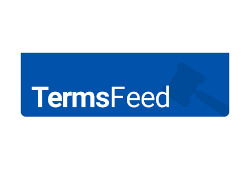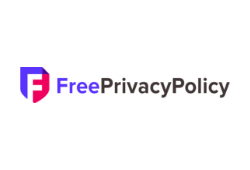Best Privacy Policy Generator Tools
Internet users are increasingly concerned about keeping their personal information secure. These days, almost every website, app, and store collects user information while user tracking is at an all-time high. That’s why sites are legally required to have a privacy policy page explaining to visitors what kind of data is being collected and how it’s being used.
If you find yourself overwhelmed by all the legal terminology in these policies, you can turn to websites and apps that are dedicated solely to generating privacy policies for you.
Best Privacy Policy Generators in February 2026
Top 5 Privacy Policy Generators - Our Picks for 2026:
- Termly - Highly customizable
- iubenda - Great privacy policy template for small businesses
- TermsFeed - Flexible pricing for websites and ads
- PrivacyPolicies.com - Excellent for sites and apps
- FreePrivacyPolicy.com - Affordable add-ons
How We Evaluate Privacy Policy Generators
There’s no shortage of privacy policy generators on the web today, but most of them aren’t very good. That’s why we’ve developed a methodology to determine which of these platforms are worth your time.
Ease of Use
We like sites that are neatly designed and have a streamlined UI. The process of creating the policy should also be straightforward, with the option to pick and choose what to include in the custom policy. The user shouldn’t have to dig around to find any options like choosing which platform the policy will be used on.
The pricing shouldn’t be hidden, either. It’s also a plus if the site updates the price while the user selects add-ons for their policy. In short, the user experience should be flawless and intuitive.
Generator Tools and Features
Aside from being user-friendly, these sites should let you tinker with a lot of options so you can create a unique policy. We look at all the settings, like the option to specify the platform where the policy is used, as a lot of users need policies for mobile apps and social media platforms.
A good feature set should include custom answers and text boxes for those situations when predetermined choices simply aren’t enough. Extra features like a translator are a big plus.
Policies Covered
One specific feature we’d like to point to is the sheer number of supported policies. Whether you’re making a privacy policy for a website, app, or some other platform, you’ll need to specify how user data is being used.
The policies are region-specific. For example, you’ll need your website to be compliant with the General Data Protection Regulation - GDPR for short - if your business is operating in Europe or collecting personal information from European citizens.
Generating privacy policies without being fully transparent and including all the required details can lead to legal problems and even site takedowns.
Pricing
Finally, we look at the pricing to determine the value the generator provides for the customer. Most of these sites create a privacy policy for free, but will charge you for any specifics on user privacy, tracking, and if the policy is going to be used for a commercial product.
We look at the monetization model, whether it’s a flat fee or an aggregated price based on chosen features, as well as whether the customer needs to sign up for a subscription or just pay a one-time fee.
Detailed Reviews of Privacy Policy Generator Tools
Termly is professional, automated, and the best-suited to companies that want a little bit more out of compliance tools. It offers a few services and features that you won’t find with other apps, but it’s still affordable and even free in some circumstances.
Generating a Policy
Termly’s policy tool is very robust without intimidating beginners. It’s on par with TermsFeed when it comes to features and policies while going into more detail with some topics.
The process consists of eight steps, which might seem more complicated when compared to other privacy policy generators. You start out by providing some basic information about your company and selecting where the policy will be used. The options include a website, mobile app, and Facebook. All three options can be selected at the same time, with more specific usage options becoming available in case a mobile policy is selected.
For personal data collection, Termly offers its own servers for storing and deleting data (per request). This and the usage information page allow you to add custom fields on top of the comprehensive pre-made list.
Other options include policies about payment processing, tracking data, and compliance with European privacy laws. One of the unique features is its ability to indicate when the policy becomes effective. Unfortunately, there are no options for CalOPPA compliance, something that TermsFeed included in its app.
User Experience
The UI is pleasant and beginner-friendly. There are two neat details that help the app stand out. The first is a progress bar, which updates in real-time whenever you click on a checkbox or fill out a text box, keeping you updated about your progress as you fill in the form.
The other is a short tutorial located on the sidebar. While you generate, you can read up on some basics about privacy policies and their importance.
You can click on the Preview button at any time to get a quick look at your customized policy. The preview screen will update as you go and include all the information that you enter into the form. And if you get stuck on anything, you can get in touch with Termly’s support team by clicking on the bottom-left button, which opens up a live chat window.
Pricing Plans
The pricing is straightforward at Termly. There are two plans. You can either pick a free but limited plan or a $9 monthly PRO+ plan. There are no complicated add-on calculations to worry about.
With the free plan, you’ll be limited to one policy hosted directly on Termly, but with automated updates and annual cookie compliance. Upgrading to a paid plan removes the Termly branding and gives you unlimited policies that can be embedded on your website and updated on a monthly basis.
This plan also creates a log of user consent in case of a legal dispute.
Pros:
- Automatic updates and audits
- Affordable pricing
- Multilingual
Cons:
- Very long policy creation process
This Milan-based company has more than 60,000 clients all over the world. With more than 1.6 million documents generated so far, it’s one of the biggest services of its kind.
Generating a Policy
Before you can begin generating policies, you’ll need to register with iubenda. The registration process is completely free, and once you’ve completed it, you can test out the generator.
Instead of privacy policy samples or any kind of manual editing, you’ll use a simple form to disclose whether the policy is meant for a website, a mobile app, or a Facebook app.
Once you select an option and enter your company’s name, you’ll have a few options for configuring your policy further. For example, a cookie notice can have different color schemes, apply CCPA and GDPR, have additional buttons, and more.
There are many customization options. The basic mode offers more than enough buttons to press and forms to fill out. But if you want to specify every little detail, like in which of the eight languages you want your privacy policy generated, you can enable the advanced mode.
User Experience
Iubenda can be a bit overwhelming at first, but it’s pretty easy to get the hang of it thanks to the intuitive user interface. There are numerous video guides with a very comprehensive knowledge base in case you get stuck on any part of the editing process.
Pricing Plans
Iubenda offers several pricing plans that are tailored to different needs. Although you can get a basic license for free, there are a number of limitations - one privacy policy that you can only use for websites and a maximum of only four services.
Then, there’s the Pro plan which gives you one privacy and cookie policy with cookie policies being free up to 25,000 page views. The privacy policies can also be used for mobile apps. This is the most well-rounded offer, costing just $29/year for personal use.
If you choose to upgrade to the Ultra plan, the cost goes up to $129/year, and you’ll get one privacy and cookie policy, one terms and conditions document, and all the Pro features.
You can add new languages for $6.75 each with both the Pro and Ultra plans, but only the latter removes iubenda branding. The many customization options that are available with these plans can raise the overall price to more than $500 per year for bigger websites.
Pros:
- Flexible pricing
- Forms in eight languages
- CMS plugins available
Cons:
- Very limited free account
TermsFeed has been operational for nearly a decade, offering paid and free policies, TOS generators, and more. Its minimalistic design hides a powerful set of tools and is one of the main reasons it’s become a one-stop-shop for anyone looking to add a policy to their website.
Generating a Policy
The site is famous for its quick four-step policy generation process. First up is the platform selection: Is it going to be a website or a mobile app? You can select both. Then, you’ll need to enter some basic information so the app can start filling out your policy.
The privacy policy generator allows you to enter your business details, where the name and the address of the company are required fields. For individuals, no personal information is required aside from the country where the service or website is operating from.
You can then disclose what information you’re planning to gather from your users. There are a lot of options on this screen, from analytics tools, newsletters, and ads to specifying what kind of transaction methods, if any, are used on the website.
It’s remarkable how detailed some options are. TermsFeed takes into account some of the less popular platforms and services, and even then you can enter additional information in the field. When it comes to customization, this truly is the best privacy policy generator tool.
Moreover, support for different markets and policies is outstanding. The form asks whether you require GDPR compliance or compliance with the California Online Privacy Protection Act, as well as whether you’ll be collecting information from minors. It covers all the bases, so you don’t have to worry about adding extra text to the generated policy.
Finally, the checkout process is fast. The site will add up your total cost in case you select any of the paid options, and all that’s left for you to do is enter your email and payment information.
User Experience
The whole site is superbly streamlined, and every option you’re presented with is well explained. Text boxes neatly slide up if you select any option that requires additional input, the information about COPPA, the GDPR, and other policies is highlighted, and the layout of the page is very clean. There are zero distractions. This is exactly the type of form we love to use.
Pricing Plans
This is where it gets interesting. TermsFeed doesn’t charge anything upfront and doesn’t offer any prepaid plans that would limit your policy creation options. You can get a free privacy policy through this site as long as you don’t need anything more than the most basic options.
An app policy costs $9 right off the bat, while clauses for advertisements, payments, and analytics add $24 to your total. The collection of social media data costs another $9. On the flipside, TermsFeed offers several free templates even for unregistered users.
Pros:
- Free basic website policy
- Very easy to use
- Flexible pricing for websites and apps
Cons:
- Pricey for complex policies
PrivacyPolicies.com is an online service that’s focused on creating different policies and disclaimers for your website or mobile app. Whether you need a basic or a very detailed policy, you’re sure to find one on this site.
Generating a Policy
Creating your new policy with this service isn’t much different from other processes that we’ve reviewed thus far. You start by picking a type of policy and entering some basic information. By default, this site can generate policies for free but only for websites. App policies are always premium products.
Filling out the form takes just a couple of minutes. You’ll be required to provide the site/app name, country, and business information. You’ll then be asked to fill out a questionnaire where you check the boxes that correspond with the data usage on your service. These include web browsing data and collection, whether you use tracking or targeting ads, payments, and more.
This segment also allows for GDPR, CalOPPA, and CCPA wording to be added to your policy. Finally, enter your email, and your free terms and conditions document or any other policies are ready. Unfortunately, English is the only option. So for any translations, you’ll have to hire a third party.
User Experience
Using this site couldn’t be simpler. Like many similar services, it uses a three-step method for collecting information. The forms are easy to read even on smartphones thanks to the clear font. We liked that required policies are highlighted, ensuring that customers are aware they’ll need to include them in some form.
Pricing Plans
You can use this service absolutely free. There are, of course, paid add-ons, starting from $9 for a mobile app policy. The most expensive add-ons are CCPA and GDPR privacy policies, costing $29 each. Your total is calculated during the final step of the sign-up process, and the site doesn’t have any hidden fees or subscriptions.
Pros:
- Seven policy generators
- Free and premium policies
- Transparent pricing
Cons:
- Not as feature-rich as competition
Freeprivacypolicy.com is aservice where you can get your terms and conditions document, DMCA notices, disclaimers, and more absolutely free.
Generating a Policy
There are seven types of documents to choose from. Once you’ve figured out what type of policy you want to create, you’ll be asked to fill in a short three-step form. You’ll be required to disclose your country of operation as well as provide a business address if applicable and the name of the site or mobile app, of course.
The next step allows you to upgrade the free basic policies depending on how your website handles data. These are the only paid add-ons on this service, but we’ll talk about those a little later. The last step requires entering an email address, as the documents are distributed only via email.
This is also where you’ll see your final price in case you chose any premium add-ons. At the time of writing, the policies were only available in English, which means this service doesn’t offer some of the impressive features that you’ll find with other companies on our list.
User Experience
Freeprivacypolicy.com doesn’t use an arcane text editor or require any painstaking process for filling out the documents. Instead, the website is very easy to navigate, and every single option is clearly labeled. It takes less than five minutes to generate a document.
Even if you change your mind halfway through the process, you can quickly switch to another policy type by simply clicking the Generate button in the top navigation menu. This is one of the most intuitive services of its kind.
Pricing Plans
Contrary to what the name implies, Freeprivacypolicy.com isn’t a fully free policy generator. While you can generate each of the policies without spending any cash, you’ll end up with only basic documents. So, you’ll need to pay up for some add-ons.
Instead of subscription plans, the service relies on the so-called pay what you want pricing strategy. Do you need a cookie banner for your site? That’s $9. If you use analytics and want to point that out, it’ll cost you $12. That’s also the price for social media login notices as well as advertising disclaimers.
Pros:
- Multiple free policies
- No subscription
- Intuitive UI
Cons:
- Can get very pricey
WPLegalPages is a plugin that can automatically generate more than 25 policies for your website. Distributed by WPeka, it’s one of the most popular choices among webmasters that prefer WordPress over any other content management system.
Generating a Policy
WPLegalPages doesn’t work independently of your website like other products on our list. Instead, you’ll first need to integrate it into your WordPress installation and configure it in order to use it. If you’re hosting your website via WordPress, the setup process consists of just a few clicks.
There are more than 25 privacy policy templates to choose from, including GDPR, blog comments, and cookies policies as well as an earnings disclaimer. These are all attorney-level documents that you can use on your website without having to worry about any legal trouble.
The generator supports six languages, including English, French, Spanish, German, Italian, and Portuguese. You can set it up by filling out a simple form where you enter details about your business. Once you’ve completed the form, hit the Publish button.
WPLegalPages integrates with any additional form plugins that you’re using, displaying information to the visitor about data collection.
User Experience
Since this is a WordPress privacy policy generator, any kind of editing is done through the platform’s WYSIWYG editor, which means you won’t need any third-party editors. If you prefer not to use an editor, you can just fill out the aforementioned form and let the plugin do the rest.
This is a great option because you’re deploying your brand new disclaimer directly on the website, and you can see in real-time how it turns out on the live version of that page. There are even shortcodes for including the policies anywhere else on the site.
Pricing Plans
At its core, it’s a free plugin that you can download and install from the WordPress plugin directory. However, the free version gives you access to just a handful of basic policies.
You can generate a standard privacy policy, a CCPA-compliant policy, a terms and conditions page, and a DMCA policy. These cannot be customized, but it’s still more than what some other services offer.
For the more advanced pro version, you’ll need a subscription. There are three membership plans: $39/year for a single site, $69/year for three sites, and $99 for ten sites. These are very affordable options for access to terms of use templates and other legal documents.
Pros:
- 25+ templates
- Templates in six languages
- Intuitive interface
Cons:
- Subscription required for most policies
GetTerms.io stands out thanks to its sheer number of policies and templates. It’s a great product from a company called Humaan. This is a site completely dedicated to compliance, with more than 150,000 policies generated so far and very high scores on user review platforms.
Generating a Policy
This is the site with the largest number of policy templates that we’ve seen so far. The templates can be accessed by clicking on the top-right corner of the homepage and include mobile app, eCommerce, WordPress, and many other policies.
Once you’ve settled on a policy you want to create, including the pricing plan, all you have to do is fill out a single page with a few checkboxes and text fields. The policies are available in English and Spanish, with US and UK markets covered separately.
You can select the types of data that you’ll be collecting from your website visitors, disclose whether you use third-party services and targeted advertising, and name the countries where the data is stored. The terms and conditions generator also includes cookie policies and fields for GDPR compliance.
Sadly, there are no specific fields for compliance with the Children’s Online Privacy Protection rule and CalOPPA, so you’ll need to add those sections manually. Considering the fact that this service isn’t free, we expected those sections to be included.
User Experience
Completing the form at GetTerms.io couldn’t be simpler, and people who appreciate navigational efficiency will absolutely love this app’s design. There is a single page with clearly marked sections and short explanations for each one. This may very well be the best option on the market when it comes to the speed of the process.
But some users might not like the font size that the GetTerms.io team chose for its app. It’s significantly smaller than what many are used to. Other than that, there really are no downsides when it comes to usability.
Pricing Plans
GetTerms.io has three pricing tiers. A free plan covers just the basics and is available for all generators except the website one. If you need a more in-depth but still affordable solution, choose the Starter Pack for $25. This package includes disclaimers for data logging, cookies, and third-party privacy.
You’ll get both text and HTML versions of the privacy policy page along with standard Terms of Service.
The most comprehensive package costs $49, and you’ll need it if you want your site to be GDPR-compliant. It also adds fields for user-generated content and a data footprint, with more details for nearly all other basic options.
Finally, if you need access to bilingual terms of use, you’ll need to pay extra for it. One language or market is always included in the package, so be sure to select the right one when creating your policy. Each additional language costs $10 and the site updates pricing in real time.
Pros:
- Large number of templates
- Bilingual policies available
- Intuitive interface
Cons:
- Lacks in the compliance department
Shopify isn’t the first thing that comes to mind when talking about privacy policy generators. This eCommerce powerhouse also offers a lot of other tools for building online stores, promoting brands, and generating cash in different ways. But money isn’t the only thing it can generate. It also has one of the simplest policy generator tools.
Generating a Policy
The entire form is shorter than one page. It takes mere minutes to complete and for you to receive your policy.
That said, it’s a bit plain. Although it’s a free solution, it would have been nice to see a few more fields and options. For example, you can’t provide any contact information aside from your email address or specify what information you’re collecting. It’s a generator specifically designed for online stores.
You can only enter your company name, email and physical address, and the website. You can specify whether your website uses cookies, and that’s pretty much it. You’ll then get an email with a link to your policy, which you’ll need to customize manually.
It’s worth mentioning that the generator has been updated to be GDPR-compliant. Other free tools include a terms of service generator and a refund policy generator. Both are designed in a similar, simplified fashion and allow you to generate a policy without creating an account with Shopify.
User Experience
As you can probably guess, the whole experience is as streamlined as it gets. This may very well be the most user-friendly form we’ve ever used. It’s especially great that you don’t need an account with Shopify to use this tool.
But finding the tools takes a bit of snooping around, as the link is all the way down in the footer of the website under the Support section.
Pricing Plans
There are no paid add-ons or upgrades here. It’s just a simple tool that comes free of charge. It may be generic, but for many users it gets the job done.
Pros:
- Quick policy creation
- Free to use
- No registration required
Cons:
- Too limited
Benefits of Using a Privacy Policy Generator
Why would anyone use, let alone pay for a service that generates a privacy policy? Couldn’t we just write one ourselves? Maybe we could just grab a free template or copy someone else’s policy and slap it onto our website.
The first problem with that approach is that a policy needs to be a custom fit for the platform. It needs to meet certain criteria depending on what’s being collected through the site or a service. It needs to be written in a certain manner. Examples of privacy policies are just that - examples.
Convenience
It doesn’t matter whether you’re running a blog or an online store, or publishing a completely free mobile app - even a cheap privacy policy generator solution is better than doing everything on your own. While it’s possible, writing a policy is one heck of a task, especially if you’re not familiar with legal terms that these documents require.
Covering all the Bases
There are a lot of policies, rules, and regulations in effect today. Websites are now required to disclose how they’re using the data collected from their visitors. A privacy policy for websites needs to include precise information about what is collected, how the data is processed, and who visitors can contact if they wish to remove their data from the system.
Today, GDPR and COPPA compliances are some of the more basic legal requirements, which is why it’s easier to just let the app write out your policy.
Saving Money
While most of these services don’t come free, they’re still more affordable than hiring a lawyer or a team of people to write the policy for you. In fact, you can usually get a free basic privacy policy at any of these websites, with optional upgrades if you need it to be more comprehensive.
The pricing structure differs from site to site, with some letting you pick and choose premium add-ons, while others charge a flat fee. Whatever option you choose, your policy will be instantly delivered to your email address.

















